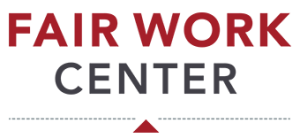This raise was brought to you by fast food workers
No single group has done more to raise standards for low-wage workers over the past decade than low-wage workers. It’s easy to take for granted the annual increases to the minimum wage in Washington, Seattle, SeaTac, and Tacoma that just occurred last week on January 1st. It’s easy to forget how we got here, and just as importantly, who got us here.
In late 2012, Working Washington began organizing in SeaTac with the idea of making every job at the airport a good job. Those efforts resulted Proposition 1, a ballot initiative passed in November of 2013 which raised wages to $15/hour with annual adjustments for inflation for airport and hospitality workers in SeaTac. It also provided paid sick days and provisions that gave workers opportunities for more hours and ensured they received all the tips or service charges they earned.
Six months later, hundreds of fast food workers with Working Washington in Seattle launched strikes across the city, calling for $15 for all workers across the city. Prior to the first strikes, the only fast food workers you heard from in the media were actors in commercials, but through their courageous action, these low-wage workers sparked a citywide debate about the poverty-wage economy and the future of work in Seattle. Despite initially being dismissed as unrealistic by nearly everyone, Seattle’s Fight for $15 was soon embraced by the public and a wide spectrum of leaders in the city.
Check out this video, “Walking Out Into History” for more on the epic win of $15 in Seattle.
The speed and scale of the shift was extraordinary. Workers continued agitating after those first strikes, with additional strikes, a march from SeaTac to Seattle, and a number of creative street actions to turn up the heat on local elected leaders to act. And in less than six months of high profile actions, a $15 minimum wage was a major plank of both mayoral candidates’ platforms and everyone, from City Hall to workplaces large and small, was talking about the inevitability of raising the minimum wage. On May 1, 2014 – just one year after those first fast food workers took to the streets – Mayor Ed Murray announced a proposal to increase Seattle’s minimum wage over the course of the next seven years to $15 or higher for all workers. The rest, as they say, is history.
Fair Work Center comes out of this history. We were founded shortly after $15 was established in Seattle in order to ensure that the new minimum wage – as well as other progressive labor standards workers won like paid sick and safe leave and fair chance employment – was enforced and that workers were getting paid the wages they fought for.
Today we provide know your rights education to thousands of workers each year. We support hundreds of workers in exercising their rights through our legal clinic. And we are partnering with Working Washington to build lasting power for low-wage workers across the state.
For more information on the minimum wage or your other rights on the job, to learn how to access our free legal clinic or arrange a know your rights training in your community, check out www.fairworkcenter.org.
